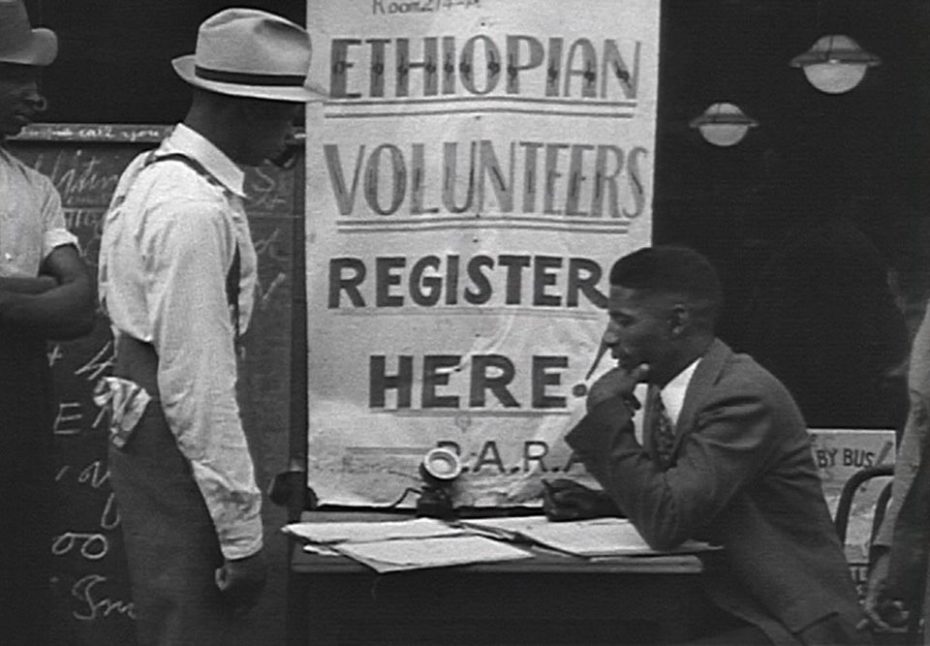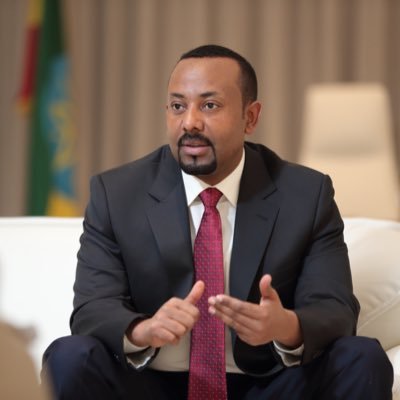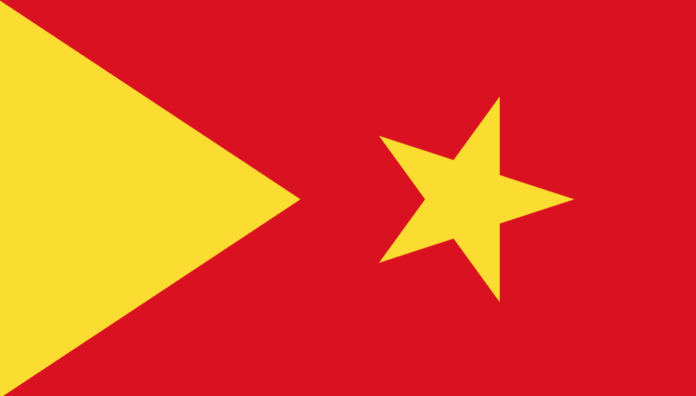It’s been 91 days since Ethiopian Prime Minister Abiy Ahmed Ali declared war on Tigray, a prominent ethnic group in the country’s northernmost region. What was promised to be a conflict between the Tigray People’s Liberation Front (TPLF) and the Ethiopian National Defense Force (ENDF) has since become a genocide of the Tigrayan people. Any milder description is a lie.
When I first started writing this piece, I wanted to give Pan-Africanism a renewed surge of energy by tying little-known Black history to the present day. I wanted to beam with pride at 17,500 Black Americans in 1935 signing up to fight in the Second Italo-Ethiopian war. I wanted to talk about Ethiopia’s role in representing our Pan-African hopes. I wanted my Black peers to buy into the dream of a diplomatic league of African states invested in reconnecting with the Diaspora.

I still want those things. But the longer the Tigray Genocide drags on, the less I feel right about pushing dreams onto you. Instead, I labor to write this. Where I tend to float in ideals and descend to highlight them in the real world, I’m now carrying the weight of my people’s violent, complex, and cyclical history which has come back around.
Ethiopia: Colonized By Its Own People
The Tigray Genocide is approaching the 100 day mark, the length of time the infamous Rwandan genocide lasted in 1994. 4.5 million people—75 percent of all Tigrayans in Ethiopia—need emergency food assistance. Tens of thousands of Tigrayan refugees are pouring into Sudan. Tens of thousands more are dead and dying in attacks on places as vulnerable as churches, mosques, and hospitals.
A recent estimate from three of Tigray’s major political parties suggest more than 50,000 Tigrayan civilians have died in the past three months. For perspective, 500,000+ Syrians died in seven years of civil war. The Tigray Genocide is on pace to meet those numbers in less than half the time.
Since the beginning of the genocide in early November, the Ethiopian government has insisted on blocking communication out of Tigray as well as humanitarian aid into Tigray. The details of what’s happening on the ground are being intentionally muddied while millions of innocent Tigrayans starve at the hands of their own government.
This is not the first or second time the state of Ethiopia has tried to destroy Tigray.
When at peace, Ethiopia is an attractive collage of roughly 80 ethnic groups that foreign powers and domestic elites look to cash in on. But “peace” in Ethiopia relies on the silence of marginalized groups while being squashed and shoved to the side.
When groups—nations, frankly—like Oromia and Tigray push back and gasp for breath, Ethiopia reveals itself: a land of self-determined people whose colonizers are their neighbors—not evil white fascists from another continent, but people who call themselves fellow citizens, countrymen. Their “own” people, people who believe sovereign minority groups are a threat to their way of life rather than a shining light of African self-determination. Of Black self-determination.
Sources like Omna Tigray, and political scholars like Martin Plaut and Alex de Waal have explained the geopolitical battles this genocide hides behind. Not to mention the motives for Ethiopia’s unelected prime minister Abiy Ahmed Ali to make peace with Eritrean dictator Isayas Afwerki, a move he won a now-dubious Nobel Peace Prize for in 2019.
All I want to do is bring Tigray’s story into the fold of global Blackness.

Moving Past The Myth of One Ethiopia
Though the dream of a unified Ethiopia is shattered, my goal in asking Black Americans to consider the Tigrayan plight is the same: support Black freedom.
There are plenty of flaws to point out in TPLF’s time as leaders of Ethiopia’s government. Very few Tigrayans would say TPLF are perfect statesmen. But at their core, Tigray’s political leaders believed in every ethnic group’s right to govern themselves. Tigray’s political leaders did not believe in colonizing their countrymen. The erasure of other groups’ languages and cultures was not a solution to them. Genocide was never a solution.
Since this principle isn’t clear or severe enough to many Ethiopian commentators today, genocide will never be a solution. If you believe corruption of political leaders calls for the starvation, rape, and mass murder of their people, you have personal issues far bigger than your political rivals.
Ethiopia’s political elite believe in assimilation at all costs. Ethiopia’s political elite believe in unity at the cost of most people’s identities. When a region does not comply—historically, Tigray—Ethiopia has regularly called upon other nations like Great Britain (by Haile Selassie himself), Russia, and now the UAE and Eritrea, to massacre Tigrayans.
If a nation’s leaders regularly call upon foreigners to destroy their own people, who exactly are their people?
Oh, and the nationwide censorship? The use of hunger as a weapon of war? The freezing of banks, mass arrests, and blocking of humanitarian aid? Not to worry, they did all that by themselves.
There are no neat solutions to the geopolitical dilemmas Ethiopia faces. A system with sovereign ethnic groups representing themselves has proven to be contentious. But if genocide can be excused by the Ethiopian masses as the cost of uniting the country, Black people worldwide must shout for Tigray to be free of Ethiopia.
Call for Ethiopia to end its communication blackout of Tigray.
Call for Ethiopia to allow humanitarian aid into Tigray.
Call for Ethiopia to allow press into Tigray.
Call on the United Nations, African Union, the USA, UK, Canada, and other invested foreign powers to pressure Eritrea, Ethiopia, and the UAE into ending this genocide.
The power you have as an individual is joining and rallying the collective voice for justice in Tigray. Trust me, you don’t need to have a deep knowledge of Ethiopia’s political situation to say genocide is wrong and needs to be met with serious consequences.
How To Help
Using the hashtags #TigrayGenocide and #TigrayCantWait on Twitter will help amplify international pressure on the most important governing bodies. Including the following organizations in your tweets will make your calls more pointed: United Nations (@UN), African Union (@_AfricanUnion), Human Rights Watch (@hrw), the Nobel Peace Center (@NobelPeaceOslo), the German Foreign Office (@GermanyDiplo), France’s Ministry for Europe and Foreign Affairs (@Francediplo_EN) and various state departments such as the US State Department (@statedept, @secblinken).
I know one person can’t fight every fight all the time. But every second of time you put toward ending the Tigray Genocide now is invaluable. Few things require more urgent action than a genocide, and tweets are a small investment of time with the potential payout of lives saved.
If you want to help financially, visit Omna Tigray’s list of funds to donate to. The top organizations are ran by Tigrayans, including the Tigray Development Association in North America.
UPDATE 2/3/2021: Edited for sources and backlinks
